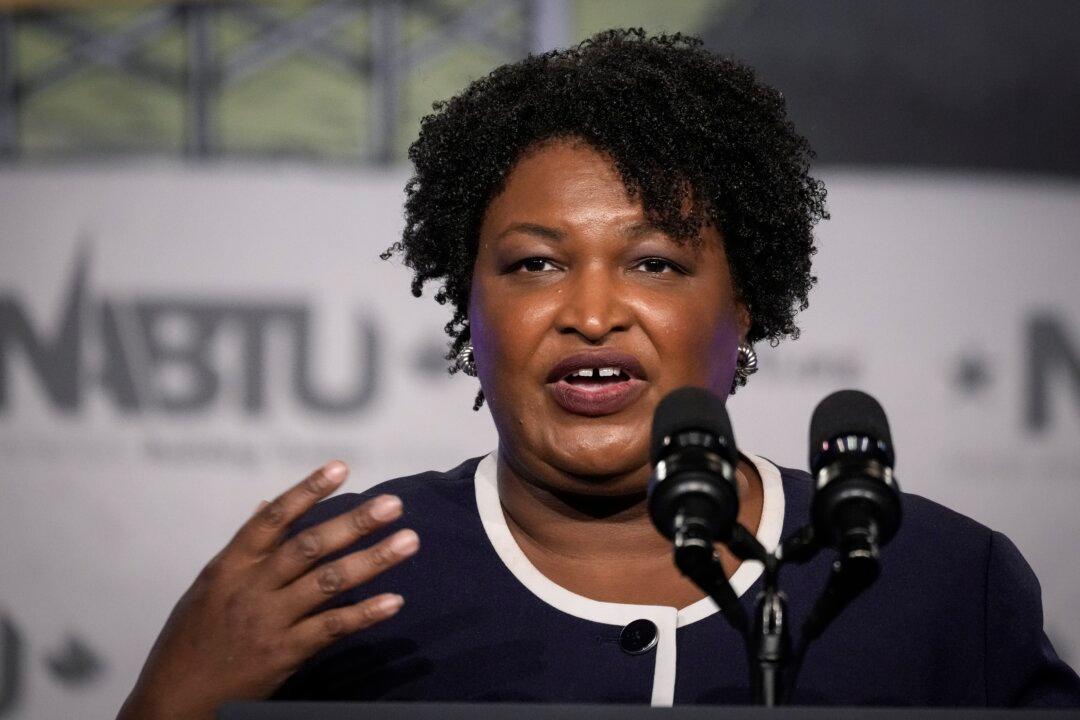Stacey Abrams’s economic plan, showcased in a speech she gave on Aug. 9, will—despite her claims—cost Georgia taxpayers money both in new taxes and in lost tax rebates, her opponent Brian Kemp’s camp stated on Aug. 10.
“Tonight was an hour of hot air and empty words from a desperate candidate who can’t get poll results back quick enough to tell her what government program to promise to voters next,” said Tate Mitchell, the incumbent governor’s spokesman. “Abrams’s plans would cost billions in new spending, and her record proves that she’s coming for your wallet to pay for it all.”





